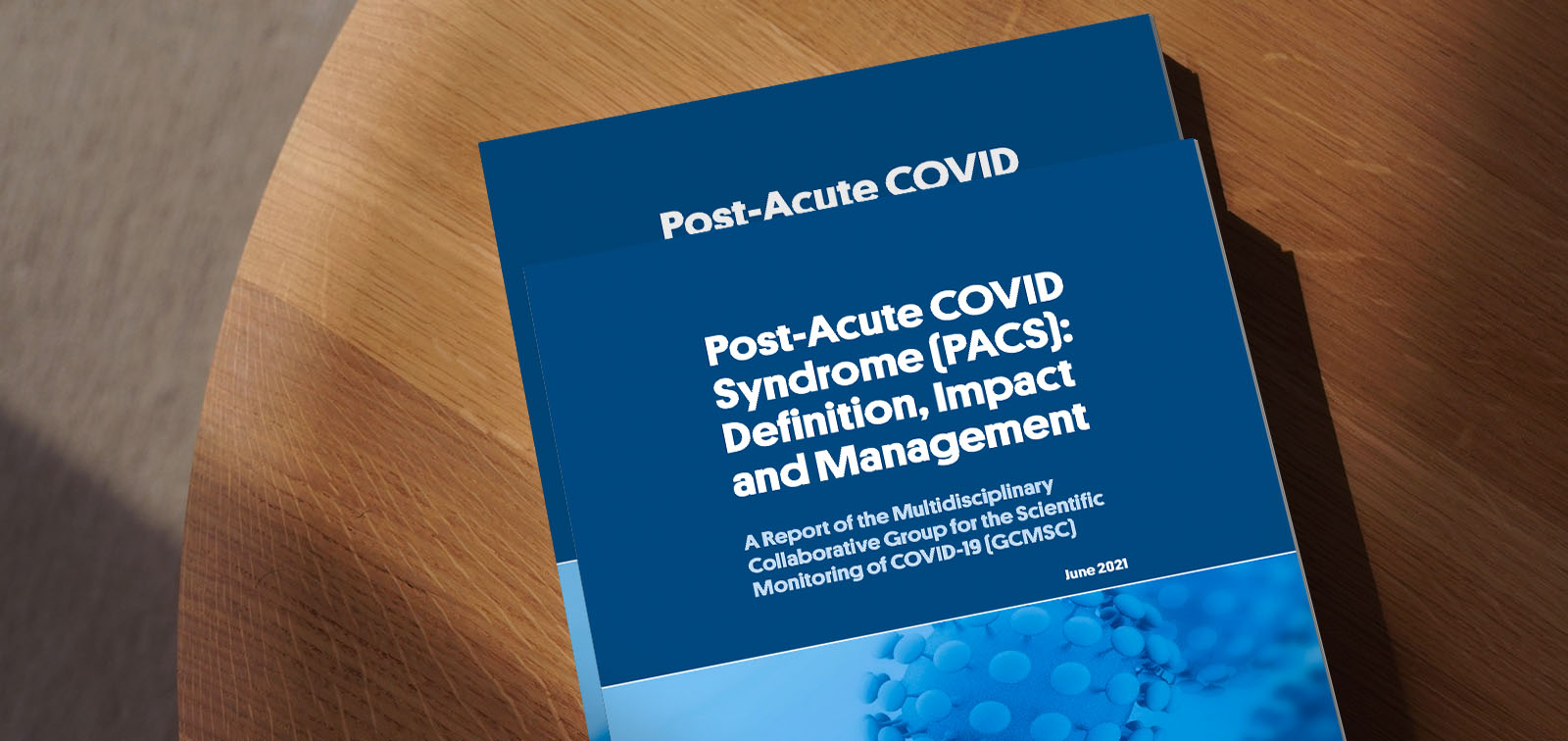A New Report Analyses the Post-Acute COVID Syndrome
The Multidisciplinary Collaborative Group for the Scientific Monitoring of COVID-19 presents its third report, focused on persistent symptoms among convalescent patients
22.06.2021
Up to 15% of all patients with COVID-19 may present persistent symptomatology for weeks or even months after the initial infection, according to several studies. Thus, given the accumulated burden of COVID-19 disease in Catalonia, Spain, 90,000 people could have been or are currently affected by persistent symptoms or sequelae.
The Multidisciplinary Collaborative Group for the Scientific Monitoring of COVID-19 (GCMSC), promoted by the Barcelona Institute for Global Health (ISGlobal), an institution supported by “la Caixa” Foundation, and the Barcelona Medical Council (CoMB), with the support of the Catalan Research Centres Association (ACER), has just published the report “Post-Acute COVID Syndrome (PACS): Definition, Impact and Management”. In this document, they propose a clear set of case definitions of Post-Acute COVID syndrome and its different clinical scenarios, and recommend a comprehensive medical follow-up to better evaluate its clinical characteristics and complications.
From all the existing definitions of Post COVID-19, the authors of the report support the use of the term Post-Acute COVID Syndrome (PACS), which includes two sub-entities or scenarios which are not mutually exclusive: 1) Long COVID: persistence of symptoms (present or not at the onset of infection) after four weeks of infection and that are not due to irreversible organ damage, and 2) Sequelae: Irreversible tissue damage after 12 weeks and that could represent different degrees of permanent dysfunction and associated symptoms.
In addition to proposing the use of a single and universal nomenclature, the authors recommend the standardisation and adequate codification of this case definition. “We need a specific CIE code for this syndrome and its clinical phenotypes, in order to facilitate its identification, allow an adequate follow-up of the patients, and conduct comparative studies to better evaluate its global impact,” says Gema Lledó, researcher at the Hospital Clínic and co-author of the report.
There is a great variety of PACS symptoms, but the most frequent ones are fatigue (52%), cardio-respiratory symptoms (30-42%), and neurological symptoms (40%). Although the underlying mechanisms are not clearly understood, they could involve cytopathic damage, immune dysregulation, and inflammatory tissue damage. The authors of the report recommend a holistic follow-up of these patients to better understand the clinical characteristics of the syndrome and manage its complications.
“We still have few data on the dynamics of the evolution and resolution of PACS”, says Jacobo Sellares, pneumologist at the Hospital Clinic. “We need to establish clear circuits to refer these patients from primary care to the hospital in order to guarantee their adequate management, with the creation of multidisciplinary units that offer a comprehensive follow-up of the patient.”
Persistent COVID-19 symptoms can have a serious impact on people’s ability to work, with significant psychological, social and economic impact for themselves, their families and society. The GCMSC underlines, in this third report, that now is the time to establish the appropriate strategies to address this second added burden of COVID-19, in order to mitigate its impact.
About the ‘Grupo Colaborativo Multidisciplinar para el Seguimiento Científico de la COVID-19’
The GCMSC is a group of independent experts from different backgrounds and disciplines whose expertise is relevant in the COVID-19 context. They came together for the first time in September 2020 with the goal of conducting a regular follow-up of scientific evidence related with the control of the pandemic in order to guide technical and political decisions on the COVID-19 response through reports that can be consulted by authorities, private entities and the society in general.
The group is composed by Silvia de Sanjosé (epidemiologist, Consultant National Cancer Institute), Josep M Miró (infectious disease specialist, Hospital Clínic and Universitat de Barcelona), Quique Bassat (paediatrician, ICREA researcher at ISGlobal), Magda Campins (epidemiologist, Hospital Vall d’Hebron), Robert Guerri (internist, Hospital del Mar), Carles Brotons (family doctor, EAP Sardenya), Juana Díez (virologist, CEXS, Universitat Pompeu Fabra), Julià Blanco (biochemist and immunologist, IrsiCaixa-IGHTP), Mireia Sans (family doctor, Cap Borrell), Olga Rubio (intensive care, Althaia and Sociedad Catalana Bioética) and Adelaida Sarukhan (inmunólogist and scientific writer in ISGlobal).



